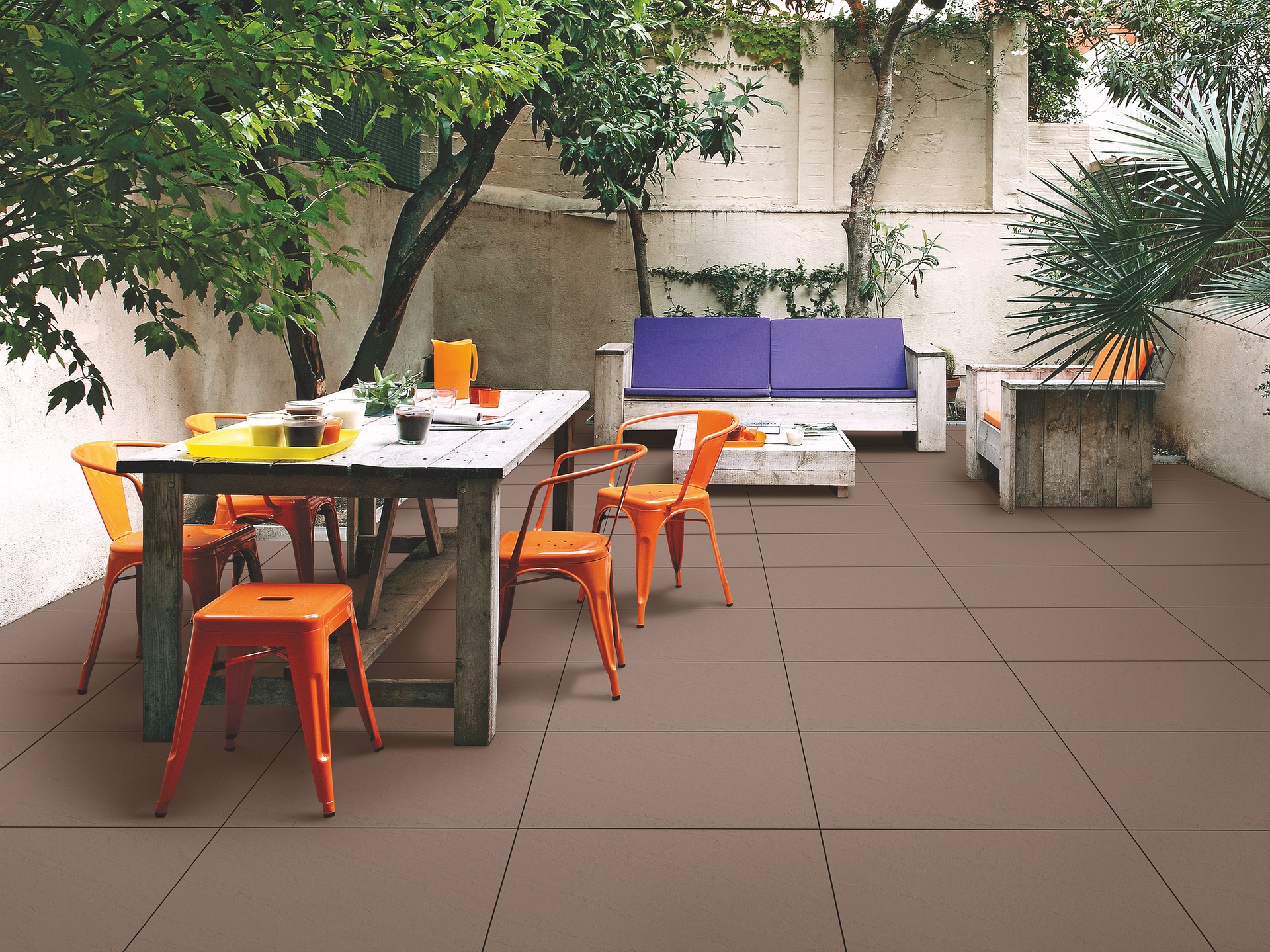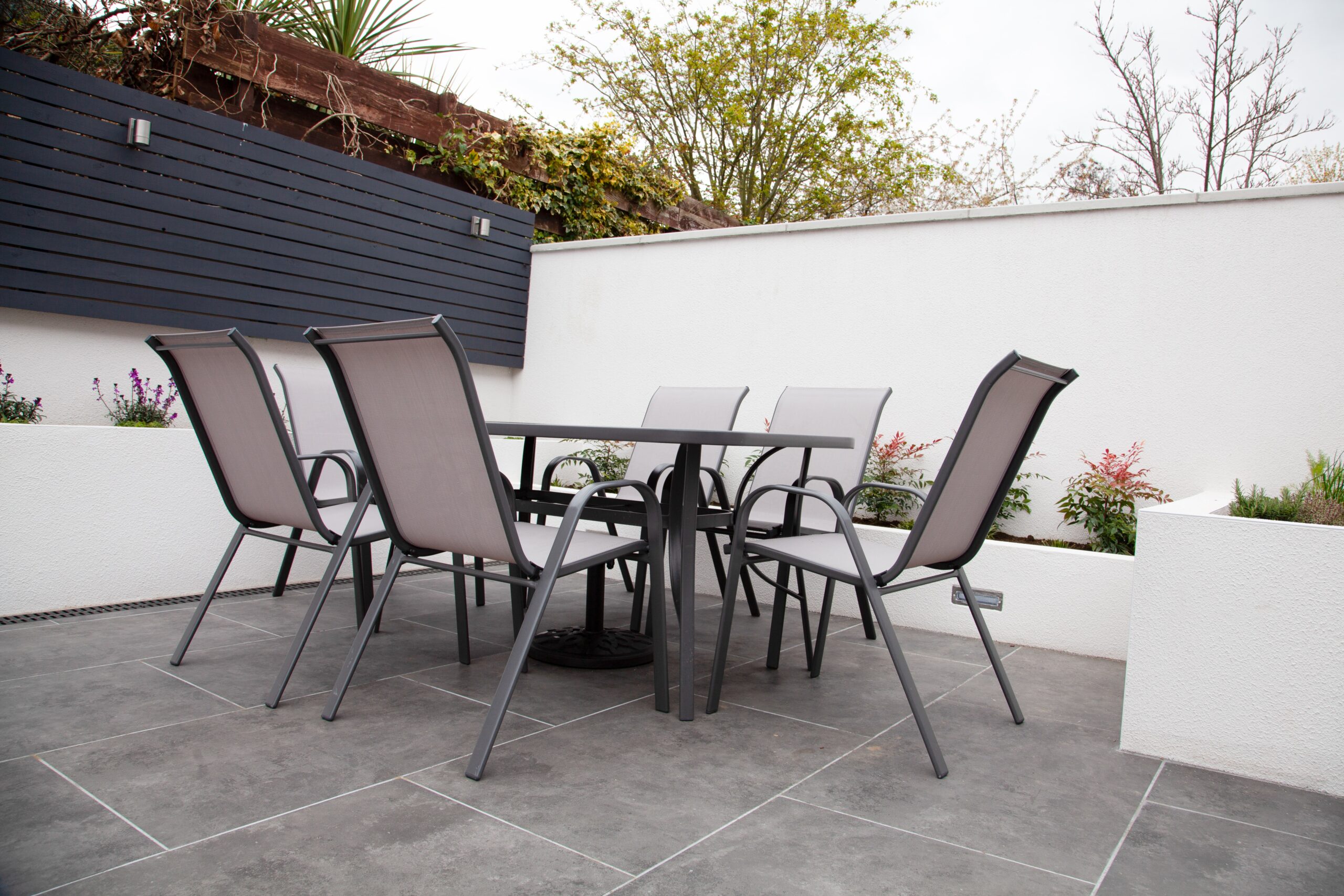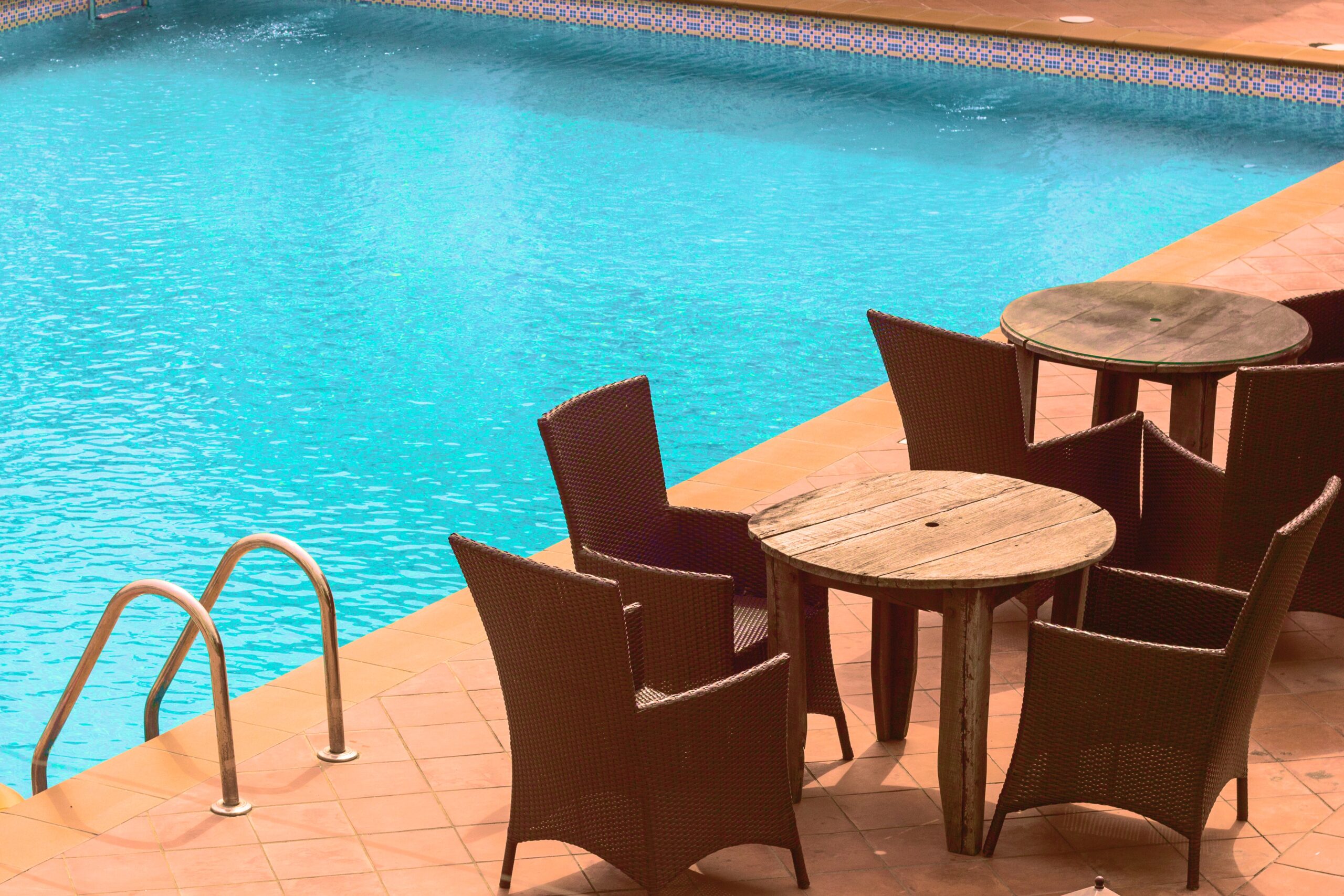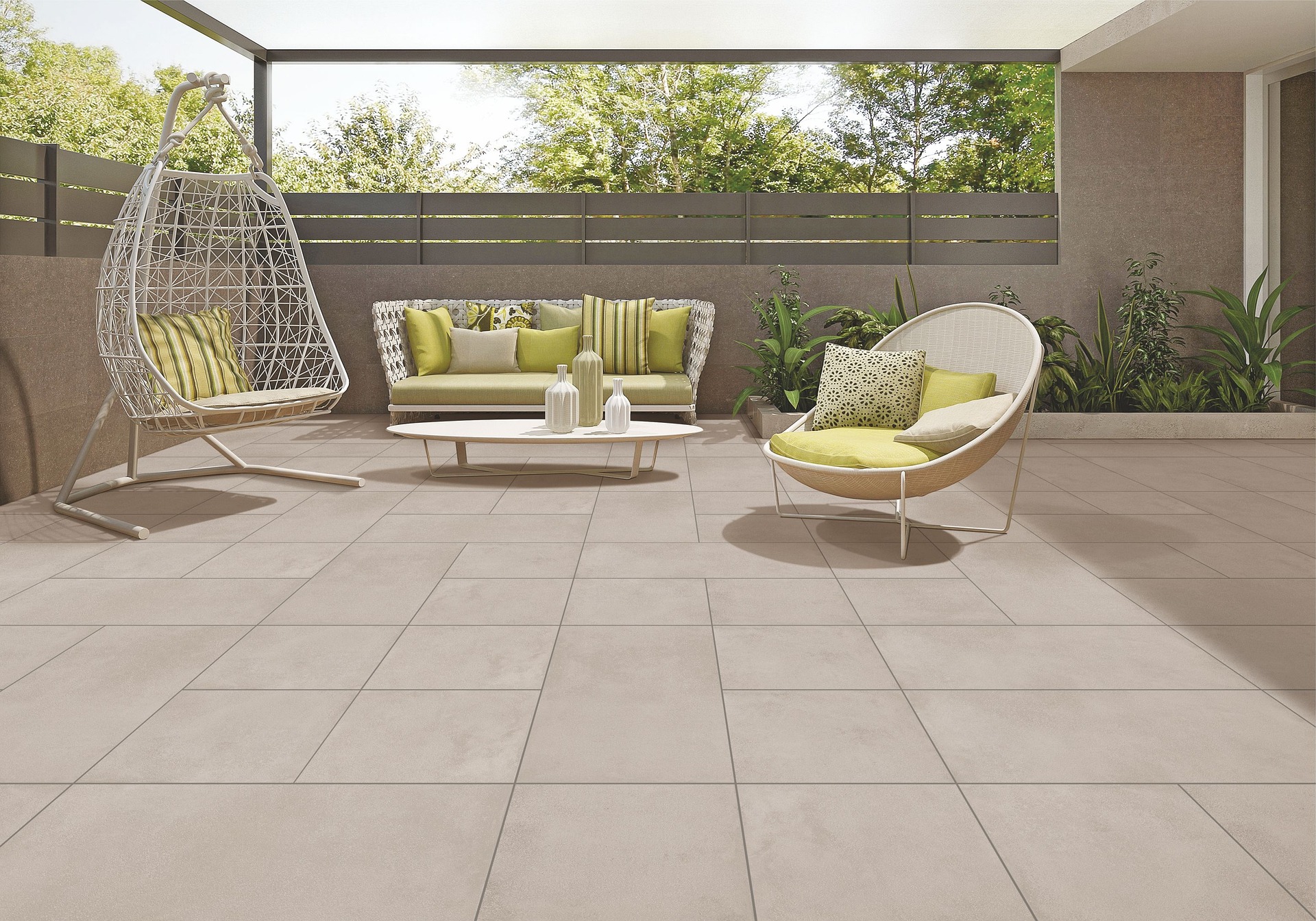Porcelain Deck Tiles Buyers Guide for 2023


Roger Marx
Roger Marx, a distinguished BPA Advisor specializing in Landscaping & Outdoor Materials, is dedicated to sharing his extensive knowledge and expertise on the latest trending building and design products. With a keen focus on landscaping and outdoor materials, Roger contributes valuable insights that shape discussions on innovative construction practices and materials in these vibrant and essential areas.
Quarry tile, pressed floor tile, wall tile, mosaic tile, and porcelain tile are all varieties of ceramic tile that make up the "ceramic tile family." These tile subsets all have the advantages of ceramic tile but are created slightly differently. Thus, they each offer specific benefits and are more suited to particular uses.
In this article, we will focus on porcelain tiles — more specifically, porcelain deck tiles.
What are Porcelain Deck Tiles?
Although porcelain tile belongs to the same family as other ceramic items, it is produced to a higher level. High-quality clay is fired at greater temperatures and for a longer period of time than other ceramics. The end result is a highly durable, adaptable material that may be applied to interior and outdoor walls or floors.
There are several different types of porcelain deck tiles to choose from, but the two main categories are glazed and unglazed. The Porcelain Enamel Institute classifies porcelain tiles into five classes. The least durable grade is grade 1, and the most lasting grade is grade 5.
Glazed
Glazed porcelain tiles have a covering that seals them. Customers frequently have a choice of a matte, semi-polished, or gloss finish, and they can be either solid colored or patterned.
Digital images are printed on tiles using a unique glazing technique to create decorative printed tiles. As a result, porcelain tiles may be produced to convincingly mimic any form of flooring, including wood or stone.
Color-bodied tiles have added color through their entire thickness as well as a surface glaze for protection and aesthetic value.
Unglazed
Unglazed porcelain tiles are naturally weather and wear-resistant despite not having a protective coating. Any texture can be created for unglazed tiles, and they can also be polished for a glossy appearance. Unglazed tiles are all a little unique since they do not have an outer finish applied.
Unglazed full-bodied tiles have no additional color. Every tile contains vein and grain patterns throughout.
Double-loaded tiles are particularly robust for high-traffic areas because they are constructed of two layers of clay that are pressed together. Two layers of various colors can be combined to make distinct patterns.
What are the Benefits of Porcelain Deck Tiles?

There are several benefits to picking porcelain tiles for your deck — or anywhere else in your home!
Durability: Because porcelain has been used for so many diverse purposes over the years, its durability is one of its most valuable qualities. Porcelain is a hard, long-lasting, wear-resistant material with a remarkably low water absorption rate. It is made of unique clays and a few special additives, which are then burnt in kilns at temperatures between 1,200 and 1,400 degrees Fahrenheit. Another reason porcelain tiles are considered so durable is that they are resistant to freeze and thaw cracking.
Easy Care: Since porcelain tiles hardly absorb any water, no sealers or protective coatings are necessary to protect the surface. Porcelain may be readily cleaned of debris and spills (including things like oil or grease which are difficult to remove from porous products like concrete) by using the proper cleaning agent. Therefore, porcelain tiles truly don't cause any problems in the regions around grills or BBQs, which can be problematic with many other materials such as wood.
Lightweight: Since porcelain tiles are generally 3/4" to 1 1/8" thick, they are easier and more affordable to transport, move to the job site, and install than both concrete and the majority of natural stone. They are especially useful for rooftop deck applications because porcelain tiles can be transported in elevators.
Aesthetics: Porcelain tiles provide an incredibly wide range of shapes and colors, greatly expanding the possibilities for outdoor architecture and enabling homeowners and designers to create visually appealing areas that are completely in tune with their surroundings.
Mildew-Resistant: The impermeability of porcelain tiles makes them particularly resistant to moss, mold, and mildew. If mildew or mold does form, it is easily washed away from the tiles.
How Much Do Porcelain Deck Tiles Cost?
Although specialty or patterned tiles can cost as much as $35 per square foot, porcelain tiles typically cost between $3 and $10 per square foot. Depending on the quality and design, the entire cost varies, but it is typically higher than that of bricks, concrete pavers, or natural stone tiles.
Aside from aesthetics, the PEI quality of porcelain tile should be the primary factor in your decision. Any flooring application with moderate usage should utilize PEI grade 3 or higher. Porcelain tiles, both glazed and unglazed, are hardy and resistant to wear in outdoor environments.
Is Porcelain Tile Good For Pool Decks?

Porcelain tiles make the perfect pool deck material for almost any house due to their unmatched durability and practically unlimited design options.
Homeowners wants to make sure that their pool deck is as safe as it can be for their loved ones, friends, and visitors. The ability of porcelain outdoor tiles to resist slipping makes them a popular choice for pool decking. Porcelain tiles won't become particularly slick or hazardous to walk on even after being exposed to water making them an excellent choice for pool decking.
In moist environments like pool decks, germs like mold and mildew can cause problems. Since porcelain outdoor tiles are nonporous and highly resistant to mold and mildew, they are the ideal choice for damp surfaces around pools.
Is Porcelain Tile Good for Outdoor Patios?

For a number of reasons, porcelain tiles are a great material for outdoor applications.
Because all porcelain tiles absorb less than 0.5 percent of water, they are weather- and stain-resistant. Porcelain tiles won't break in freezing conditions like other materials.
Even in direct sunshine, porcelain tiles are exceptionally resistant to UV degradation. Porcelain tiles are stronger and more resilient than ceramic tiles in high-traffic areas because of their specialized production process.
How Do You Install Porcelain Deck Tiles?
The installation of porcelain tiles is comparable to any other outdoor tiling project. It takes a lot of time and a little bit of technical skill. Because porcelain tiles are so hard, you need special tools to cut them. If you're not a seasoned do-it-yourselfer — who is prepared to spend money on supplies for the project — avoid installing porcelain tiles yourself.
Pro Tip: Start with a flat surface. Attempting to tile an uneven deck will wind up being more hassle than it is worth, and you'll likely end up with lippage — edges protruding above neighboring tiles.
The basic steps for installing porcelain deck tiles include:
1. Marking out the area.
The area where your new patio or deck will be installed needs to be marked out and prepared before you begin working with the tiles. Mark the area with stakes and thread after measuring it out. Calculate the square footage of the area by multiplying its length by its width, and then multiply that result by 1.1 to account for 10 percent extra tiles for cuts and waste.
2. Prep the deck.
To ensure a durable installation, you'll need to prepare the area after you know exactly where the tiles will go. Depending on your existing terrain and landscaping, this can entail excavating the area, constructing a sub-base, or leveling the surface using supports like adjustable deck pedestals. Be careful to build a tiny slope so that proper drainage is possible. Insufficient run-off space can cause pools to form on the tiles' surface, making them slick, filthy, and generally hazardous.
3. Mortar application.
To provide the tiles with a surface to stick to, you must add a layer of mortar between your base and the tiles. Mortar is a sand, cement, and water mixture that has been applied over the deck area. When the mixture is ready, cover the indicated area with a thick layer.
4. Tile preparation.
Due to the nonabsorbency of porcelain tiles, a primer must be used to ensure adequate adherence to the cement base. The slurry powder should be mixed with water for three to five minutes to achieve a smooth, lump-free consistency. With a brush or paint roller, apply this slurry primer in thin, even layers to the porcelain tile's underside.
5. Laying the tile.
Start laying each porcelain patio tile one at a time after priming them. The first tile you set is the most crucial, so give it additional attention. Make sure you begin in a corner with a clear edge, such as a wall or your marking string. It must be precisely lined up because it determines the angle for the remainder of the patio. You should have enough time to modify the tile, if necessary, thanks to the mortar. Continue priming and setting each tile in the row with the same accuracy after the first one is set. Use spacers to consistently position each tile at a distance of 3 to 5 mm apart.
6. Grout.
Give the tiles at least 12 hours to set after they have all been installed. (Please avoid stepping on the tiles during this time.) It is time to grout the tile when they have dried. Be liberal with the application of grout since it protects the tile by acting as a waterproof barrier. Try to cram as much grout as you can between the tiles, then smooth it on top. As you go, remove any remaining grout so that it doesn't solidify and become challenging to remove later.
How Do You Install Porcelain Tile on a Wood Deck?
Tile installation over a typical deck frame in an outdoor setting is a formula for disaster. It is practically impossible to provide the long-term performance that most inhabitants expect when tile, grout, wood, and water are present in a setting with temperature and moisture changes. A traditional tile floor might likely be done for a deck that is partially covered by a roof and shielded from heavy precipitation, but otherwise, specialized systems made for deck applications should be taken into consideration.
A few products available on the market enable the installation of a final tile appearance on an elevated wood-framed deck. Sometimes, specific tiles can be installed in a grid system without grout. These systems enable drainage and mobility. There are also technologies created to lay dry-laid tiles on decks, giving them the appearance of a tile floor.
The Top Porcelain Deck Tile Brands
Marazzi, Interceramic, and Daltile are renowned manufacturers and suppliers of porcelain tile.
Marazzi stoneware is a coveted material for paving outdoor spaces since it is durable, waterproof, frostproof, and anti-slip. Additionally offered in a 2 cm thick extra-thick version and a high-performance version. Marazzi offers a variety of colors, both as solid colors and in the various tactile effects, including wood, stone, marble, and concrete.
Interceramic tile is recognized for its high quality and affordability and is available in a wide range of looks and patterns that are influenced by current home design trends. It is good commercial and residential uses and has exceptional abrasion resistance. Interceramic's expertly produced tile is long-lasting and a great option for your walls and floors to add some creative flair.
For many years, Daltile has been the top producer and supplier of tiles in America. They have a huge assortment of tiles, and many other businesses copy their most well-liked products. You may buy porcelain floor tiles in all common sizes and hues, from basic floor tiles to beautiful accent tiles.
The Top Porcelain Deck Tiles Alternatives
If you would like to look at all of your options beyond porcelain, you may be interested in a few of these deck tile options.
Marble
Marble needs sealing to make it more resistant to foot traffic and the elements because it is slightly less firm and more porous than porcelain. Many homeowners adore the classy effect it has because of its distinctive, veined finish. Marble comes in a plethora of hues, from white to black. Although slip-resistant rough marble tiles are a better option for outdoor flooring, smooth polished marble is generally considered more stylish.
Granite
The toughest natural stone, granite, makes for extremely durable and weather-resistant tiles. If you want natural stone, it is one of the greatest possibilities for outdoor tiles. If you reside in a region of the nation where there are substantial seasonal weather changes, think about granite. Granite comes in a many colors, from vivid white to somber black.
Limestone
Limestone is a light-colored stone that ranges in hue from white to brown. Since it is a softer, more porous stone, sealing these tiles is necessary to prevent stains and environmental deterioration. They are not suggested for places with heavy traffic because they also easily exhibit wear. During the chilly winters, they are vulnerable to cracking. For patios that aren't covered and decks near swimming pools, non-slip tumbled limestone tiles are an alternative to polished limestone tiles, which can become slick when wet.
Slate
Slate is durable enough to fit any deck or patio area but is softer than granite and marble. Slate tiles are always unique, unlike other natural stone tiles. Using slate tiles can add considerable aesthetic interest because of the variety in their colors and textures. Earthy colors, including gray, green, brown, tan, and orange, can be found in natural slate tiles.
Saltillo
Outdoor Saltillo tile is quite robust. It withstands paw and foot usage as well as rain, mud, and filth. Additionally, Saltillo's outdoor floors are simple to maintain by either sweeping or hosing them down. Outdoor Saltillo tile is both elegant and durable.
Get Smarter About Building Products
Join 50,000+ subscribers and get our 3 min daily newsletter on what matters in the building materials industry.
You might like this


Solving Ventilation Challenges: Metal Deck Profiles and Back Draft Dampers as Key Solutions
When it comes to building design and construction, ventilation is a critical factor that often presents significant challenges. Proper ventilation is essential for maintaining indoor air quality, controlling temperature, and ensuring occupant comfort and safety. In this article, we will explore how metal deck profiles and back draft dampers are key solutions for addressing ventilation […]


The Ultimate Guide to Home Insulation
When it comes to creating a comfortable and energy-efficient home, insulation plays a pivotal role. Proper insulation helps regulate indoor temperatures, reduces energy consumption, and enhances overall comfort. In this comprehensive guide, we’ll explore various aspects of home insulation, including the best types of insulation for different areas of your home and key considerations for […]


The Best Hidden Deck Fasteners: Concealed Elegance and Lasting Stability
Decks, those quintessential outdoor havens, serve as extensions of our living spaces, inviting us to bask in the open air. But what if we could take this experience to the next level? Enter concealed deck fasteners, the unsung heroes that elevate your deck’s appearance and structural integrity, all while keeping their existence a secret. In […]